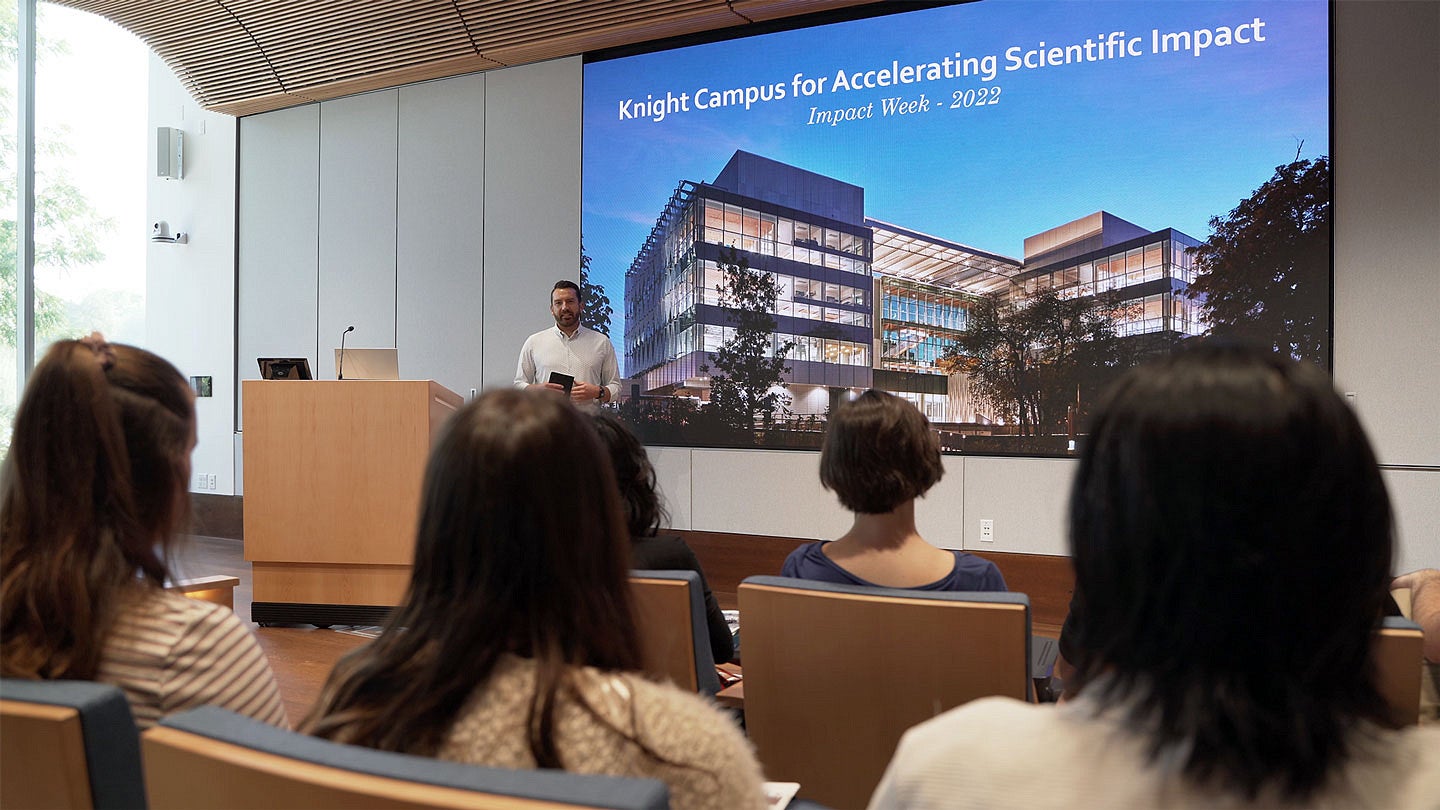
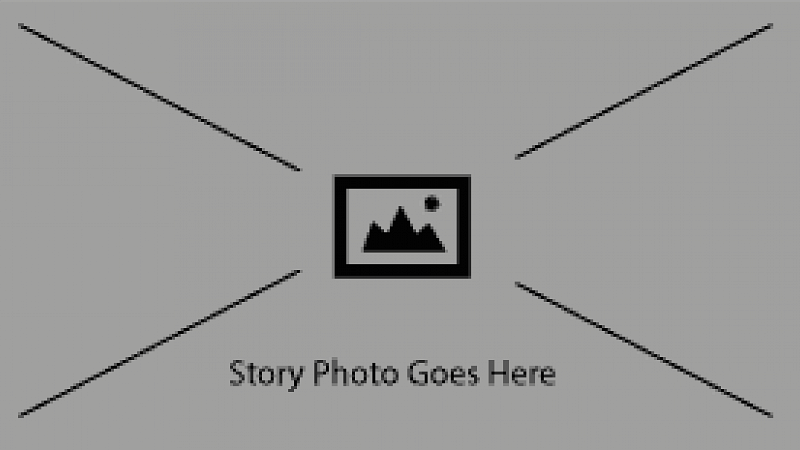
Knight Campus IMPACT Week 2022 jumpstarts grad training for 12 Ph.D. bioengineering students
In the lead up to the 2022-23 academic year, 12 Bioengineering Ph.D. students completed an orientation like no other during Knight Campus IMPACT Week 2022 — an intensive, 5-day series of workshops and applied trainings.
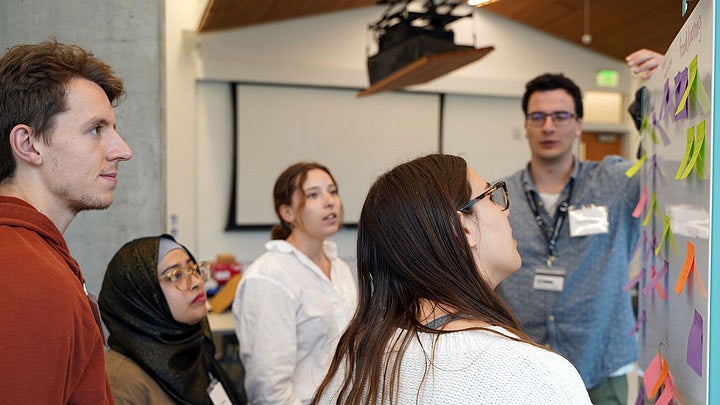
The aim of IMPACT Week, which began in 2020, is jumpstarting students’ professional growth and accelerating their careers as independent applied scientists and engineers.
“It launches your career like no other graduate program does,” said Nathan Jacobs, director of research training and career acceleration in the Knight Campus Department of Bioengineering. “Instead of focusing on administrative tasks and orientation details, we hit students with critical skills they will need to maximize their impact.”
Those skills span three essential areas:
- Forging science communication skills
- Immersing in innovation and entrepreneurship
- Applying design thinking
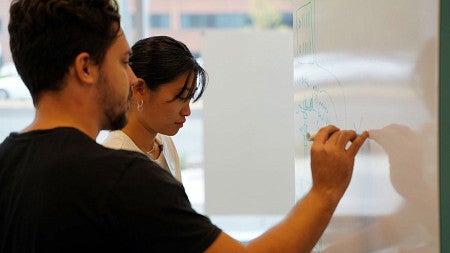
The themes, Jacobs says, overlap with each other and resonate throughout the week and beyond. For example, design thinking — a human-centered approach to innovation that seeks to solve complex problems in a user-centric way — focuses on the end user, while science communication and storytelling always begin with audience.
“Who’s your audience, who’s your end user? Whether you’re designing a research project or launching a company that’s going to drive the impact cycle, you are thinking much the same,” Jacobs said. “You can accomplish really challenging things by focusing on the users’ needs.”
The trainings are delivered by an interdisciplinary team that, in addition to Jacobs, includes Mark Blaine, professor of practice in the school of journalism and communication; Jim Hutchison, senior associate vice president and Lorry Lokey Chair in the Department of Chemistry and Biochemistry; Andrew Nelson, associate vice president of entrepreneurship and innovation, Randall C. Papé Chair in Entrepreneurship and Innovation and Associate Professor of Management; and Annie Zeidman-Karpinski, Ken and Kenda Singer Science librarian and associate professor. This year the core IMPACT Team was augmented by Melissa Brunkan, associate professor of music education and Trisha Rodley, senior instructor in theater arts, who provided additional training in vocal coaching and physical presence.
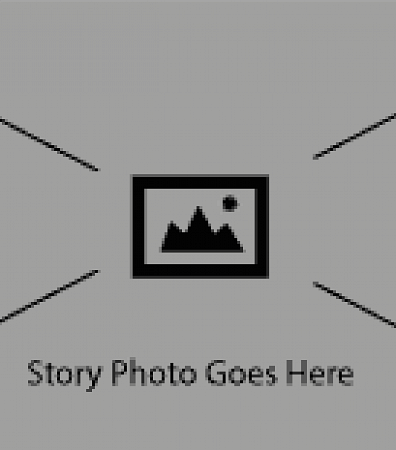
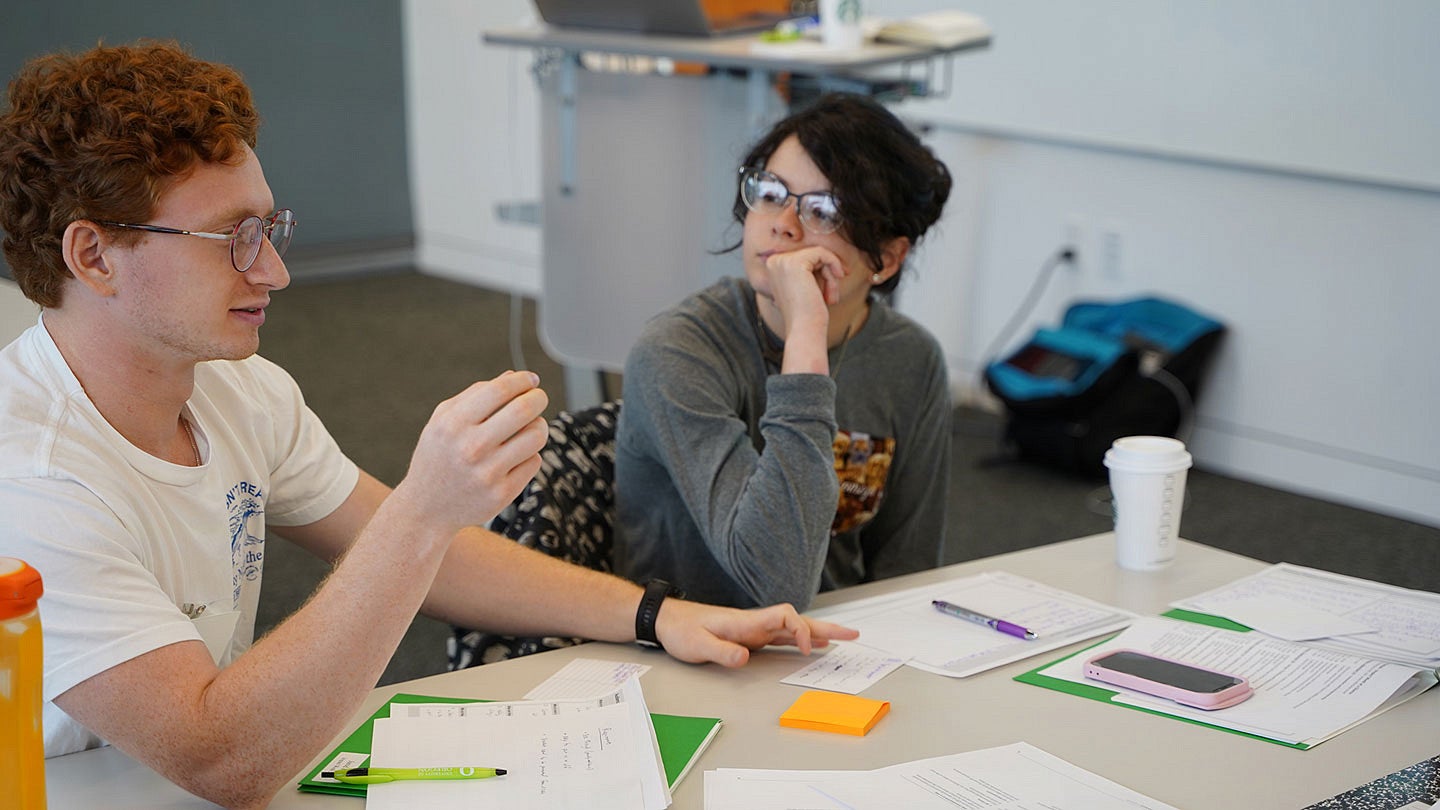
IMPACT Week included themed days devoted to essential areas with sessions focused on everything from “Observation Driven Problem Identification” to “Ideation, Prototyping and Feedback” to “Design Thinking Applied to Storytelling.” Students put their new skills into practice by delivering, and re-delivering, rapid pitch presentations of their personal “science story” throughout the week. The week culminated with an opportunity for the new students to interact with a variety of campus stakeholders about their expected research focus in a fast-paced speed dating format. The session was followed by final presentations and Q&A in the Beetham Family Seminar Room with other doctoral student cohorts and faculty, followed by a happy hour networking event on the Knight Campus Terrace.
For participating Ph.D. students like Jarod Forer, a budding bioengineer with an interest in tissue engineering, and musculoskeletal research, the program left a lasting impression.
“I tried to tell my friends about the amazing things we were doing in Impact Week, but they had a hard time comprehending everything because it is completely different than what they were experiencing,” Forer said. “In addition to the things we learned, we created a lasting bond as a cohort. I think it’s the way all programs should start.”
